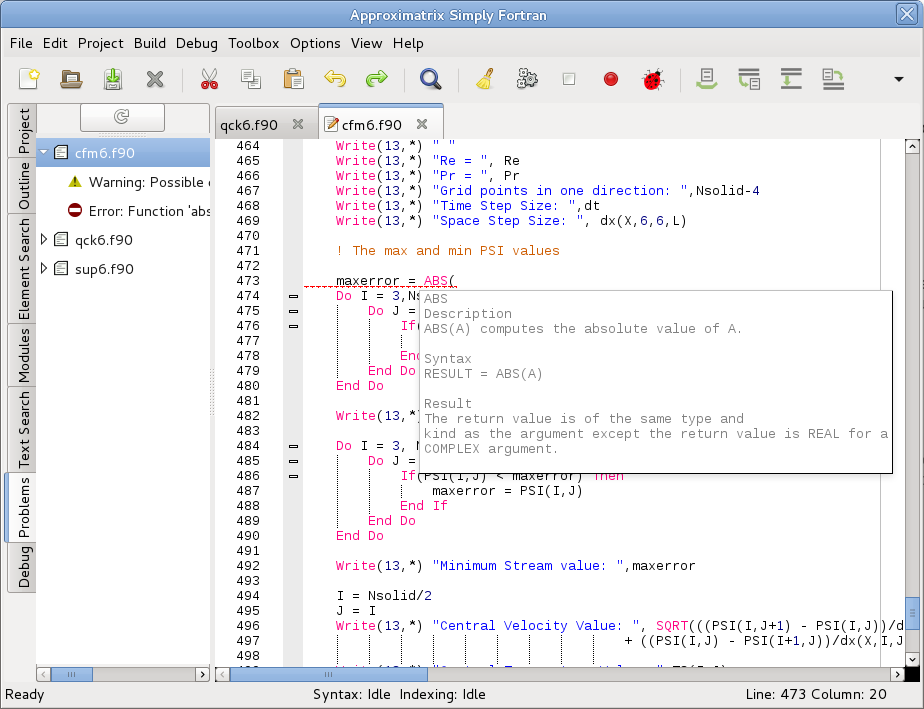

Will be listed as they are stored in the file system. If you deactivate ’Project tree’ →’Categorize by file types’ in theĬontext menu, the category display will be switched off, and the files *.ld extension in a category called Linkerscript, you only have to create the new For example, if you wish to list linker scripts with the Here you can also define custom categories forįile extensions of your own. The settings for types and categories of files can be adjusted via the context menu ’Project

These file types are shown in the ’Resources’ tab of the
#SIMPLY FORTRAN AUTOCOMPLETE INTRINSIC FUNCTIONS WINDOWS#
Resources includes files for layout descriptions for wxWidgets windows with theĮxtensions *.res *.xrc. Headers includes, among others, files with the extension *.h.

ĪSM Sources includes source files with the extensions *.s *.S *.ss *.asm. Sources includes source files with the extensions *.c *.cpp. Then you can add files to the project via the context menu ’Add files’Ĭode::Blocks governs the project files in categories according to their file extensions. The easiest way to create a new project is executing the command ’File’ →’Project’Īnd selecting a wizard. C/C++ sources and the corresponding header files are the typical components ofĪ project. In Code::Blocks, the sources and the settings for the build process are stored in a project file Will address only some of the features of the project management. The settings of Code::Blocks are stored in the corresponding configuration fileĬode::Blocks offers a very flexible and comprehensive project management. The status bar will show the currently used profile, otherwise default will be shown. If you start Code::Blocks with the command line option -personality= then.This option will result in a read-only access of theĬorresponding file within Code::Blocks, but the original read and writeĪttributes of the file on the filesystem are not modified. The appearing dialog in the tab ’General’ the option ’File is read-only’Ĭan be selected. In the active editor the user can select the context menu properties. In the window ’Open files list’ these files will be emphasised with a lock A file with read only settings will display Read only in the A modified file will be marked with Modified otherwise this The configured keyboard mode for inserting text (Insert or Overwrite).Row and column number of the current cursor position in the editor.The editor uses the default character encoding of your host operating system.Absolute path of an opened file in the editor.The status bar gives an overview of the following settings: This window is used for outputting search results, log messages of a Manage text modules, links to files and links to urls. Open files list shows a list of all files opened in the editor, in this example: hello.c.ĬodeSnippets can be displayed via the menu ’View’ →’CodeSnippets’. The ’Symbols’ tab of the Management window showsĮditor In the above illustration, a source named hello.c is opened with syntax This view show all the projects opened inĬode::Blocks at a certain time. Management This window contains the interface ’Projects’ which will in the following


 0 kommentar(er)
0 kommentar(er)
